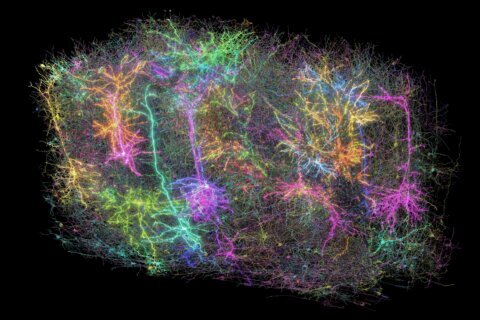Technology is changing the way we do just about everything, from riding the bus to seeing the doctor to vacuuming our floors. Not surprisingly, real estate agents are increasingly using artificial intelligence, or AI, in the course of their jobs. And in many regards, that’s a good thing, since the use of AI can streamline processes and save hard-working agents a fair amount of time.
But AI has the potential to be a mixed bag. Agents who don’t use it carefully risk running into some serious issues. With that in mind, here are some pros and cons of AI based on common uses by real estate agents today.
[READ: Smart Technology in the Kitchen]
Pro #1: AI Makes It Easier to Create Content
Real estate agents often have to double as content writers, whether they enjoy that aspect of the job or not. Agents are commonly tasked with writing up property descriptions and housing market summaries. Incorporating AI can make that part of the job easier, especially for those who don’t have a flair for the written word.
Saddat Abid, senior property buyer and CEO at Property Saviour, says, “We leverage AI in generating and optimizing property descriptions to make sure every listing appeals to the right set of eyeballs, using demographic data and buyer preferences in each and every listing. Our AI tools are crafting descriptions, highlighting key features and even suggesting the most appealing visual presentations.”
Nikki Beauchamp, associate broker at Sotheby’s International Realty, uses AI similarly.
“I have used AI to help refine and reframe content I’ve written,” she says. This includes “taking content written and asking it to be made more concise, or to be engaging to sellers or buyers.”
Mikala Ewald, broker associate at Compass, says she’s used AI for help with writing property descriptions, marketing collateral and emails. “I’ve used ChatGPT to do market research, plan a social media strategy/content calendar and write voiceovers for reels and TikToks,” she says.
Pro #2: AI Can Help Agents Identify Qualified Buyers
Another big use of AI in the world of real estate is to help identify prospective buyers based on their search histories and online behaviors.
“AI is of huge help in lead generation, as it makes use of big data to find high-quality leads based on their browsing behavior, engagement metrics, history information, among others,” Abid says. “Our sales team only needs to deal with the most promising prospects.”
Narrowing down leads can save real estate agents a world of time. It can also help buyers sell their homes more quickly, which can work to their benefit.
[See: 15 Secrets to Selling Your Home Faster.]
Pro #3: AI Can Help Build Top Real Estate Teams
Some real estate professionals are using AI to identify prospective buyers. Others, like Glenn Phillips, CEO and lead economic analyst at Lake Homes Realty, also use it to help build the strongest team of agents possible.
“It’s helping us select who we should be in touch with,” he says. This helps him avoid wasting his firm’s time as well as other people’s time in the course of the recruiting process.
Con #1: AI Content Isn’t Always Accurate
AI may be instrumental in helping real estate agents create content, but in the absence of additional research and proofreading, it can also make real estate agents sound foolish and ill-informed.
Phillips says he commonly uses AI for research and creating first drafts of the content he’s writing. But beyond that, the human touch is needed to check for accuracy.
“We don’t trust it. It lies,” he says.
[READ: How Long Does It Take to Sell a House?]
Con #2: AI Tends to Over-Embellish
AI might help streamline the process of content creation. However, as Phillips explains, it’s usually pretty easy to tell if an article is AI-generated.
Recently, his firm tried to use AI to release a report on beach properties, and he says it was obvious that the content was not written by humans. “It was very flowery,” he says.
Now, for an uninformed consumer, the AI embellishment touch may go unnoticed. But for those who can see through it, agents run the risk of losing buyers who don’t enjoy exaggerated property descriptions.
Con #3: AI Can Be a Time-Waster
A big benefit to using AI is for real estate professionals to save themselves time, but Ewald cautions that it can also be a huge time-waster.
“As a business owner, we often receive job applications with cover letters that are clearly written by AI,” she says. “They have a similar tone and cadence to them, so they’re easy to spot. At the office, we now laugh about the AI cover letters because we get so, so many of them, and we have a tendency to pass over those applications now.”
Con #4: AI Can Put Agents’ Credibility at Risk
AI has its benefits, but Phillips, who has a degree in computer engineering and a heavy tech background, warns, “If you use it blindly, you have no idea what damage it can do.”
As he explains, agents can ask AI to adhere to certain guidelines in creating content. But it can still go off the rails. Once that happens, agents risk damaging their credibility. They can even end up in situations where they’ve accidentally done something illegal, such as misrepresenting a given property.
Phillips likens AI to using a power tool: Agents who aren’t careful can cause themselves more harm than good.
That said, Phillips thinks real estate professionals should be prepared to see AI evolve in the next few years — for better and for worse.
“The pace at which this impacts people is going to be staggering,” he says. “But it won’t be perfect.”
More from U.S. News
How to Refresh Your Laundry Room with Smart Tech and Style
Why You Should (and Shouldn’t) Sell Your Home in 2024
A Homeowner’s Guide to Extreme Summer Weather
How Real Estate Agents Are Using AI Right Now originally appeared on usnews.com













